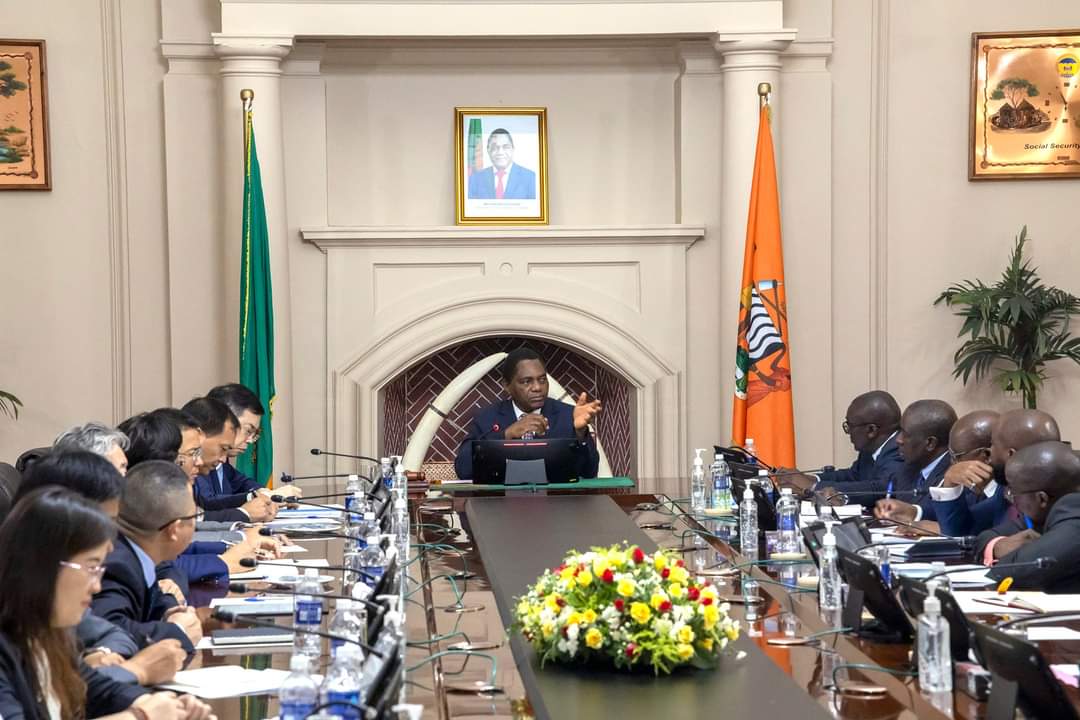President Hakainde Hichilema has expressed his satisfaction with the progress made by PowerChina International in supporting Zambia’s water resource management and improving the country’s energy sector. During a meeting at State House with PowerChina International Chairman Chen Guanfu, President Hichilema highlighted the significance of developing a comprehensive long-term master plan to streamline resource allocation and prioritize critical initiatives in energy, water management, and agriculture.
The President commended the ongoing collaboration between the Zambian government and PowerChina, emphasizing the importance of joint efforts in addressing challenges across these sectors. Minister of Agriculture Mtolo Phiri also noted that PowerChina is interested in entering into a Public-Private Partnership (PPP) with Zambia to enhance agricultural productivity. The government has proposed demonstration sites such as the Zambia National Service Mumba farm and Lusankaba farm in Mkushi District for this initiative.
Chairman Chen Guanfu expressed optimism about the enhanced cooperation between Zambia and PowerChina, particularly in tackling issues related to drought and ensuring a stable electricity supply. He outlined plans for the next phase of PowerChina’s engagement in Zambia, which he believes will further strengthen bilateral ties and yield concrete results.
The meeting underscores Zambia’s commitment to fostering strategic partnerships that drive sustainable development and address critical challenges in energy, water, and agriculture. By prioritizing these sectors, the government aims to secure a more resilient and self-sustaining future for Zambia, positioning the nation as a leader in regional development.
Public Reaction
The meeting between President Hichilema and PowerChina’s delegation has sparked mixed reactions among the public. While some applaud the government’s efforts to secure investment and technological support, others remain skeptical, expressing concerns about the long-term impacts and sustainability of such partnerships. Critics argue that the focus on international collaboration may detract from addressing immediate domestic challenges, such as power shortages and food insecurity.
As Zambia moves forward with these initiatives, the government faces the challenge of ensuring that the benefits of these partnerships are equitably distributed across the nation and do not lead to increased debt or dependency on foreign investment.






